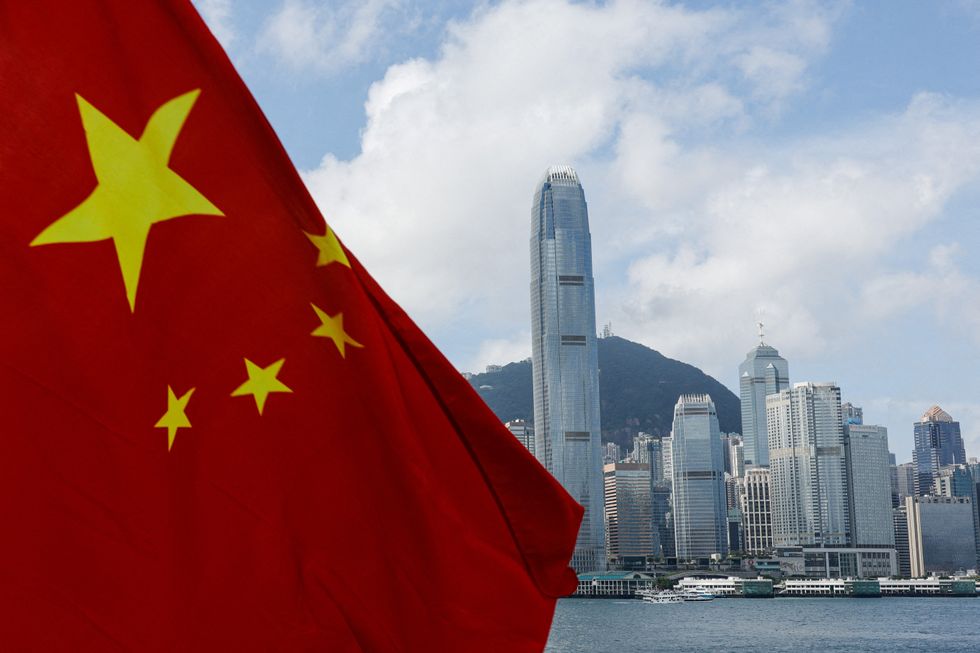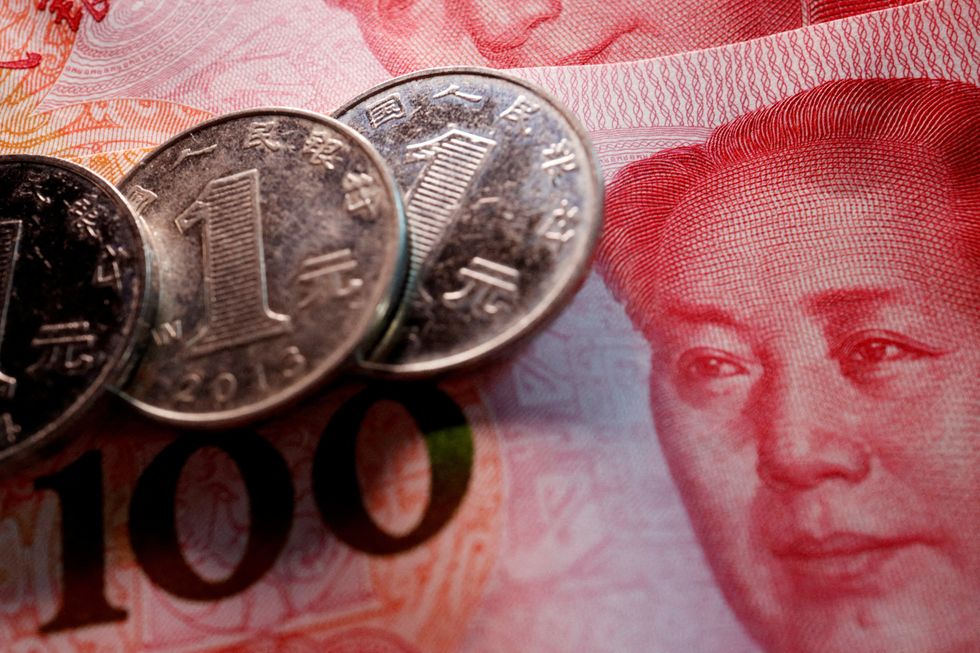China hides crisis from own citizens: Beijing's desperate economic censorship laid bare
The People’s Bank of China (PBOC) warned bankers in Hong Kong that Beijing’s economy was embarking on a 'long and difficult journey'
Don't Miss
Most Read
Trending on GB News
China’s economy is faltering post-pandemic and Beijing is trying to hide its failings from its own citizens, as revealed in a speech delivered by a senior banking official.
Last week, the People’s Bank of China (PBOC) Governor Pan Gongsheng warned bankers in Hong Kong that Beijing’s economy was embarking on a “long and difficult journey” on the road to transformation.
However, when the speech was relayed to a domestic audience, the phrase “long and difficult” was omitted.
The speech directed at Chinese audiences also offered little information on what the transformation would look like, only that it was aiming for “high quality and sustainable growth”.
WATCH NOW: Gordon Chang discusses China's economy
Other key factors in slowing down China’s economic prowess included a property sector downturn, local government debt risks, slow global growth and geopolitical tensions.
Gongsheng’s comments come ahead of the central economic work conference which is expected later this month.
Analysts and investors are trying to figure out the Communist Party’s targets for gross domestic product growth in 2024, which in turn will dictate levels of support for the economy.
“I think the market is expecting signals for more support measures,” said Fred Neumann, chief Asia economist at HSBC.
“Is there going to be more fiscal stimulus in the pipeline? What’s the thinking around monetary easing? Because there is a sense that without further policy support, the economy will struggle to reach 5 per cent next year organically.”
Investor Ruchir Sharma said the country's decades-long run of growth has come to an end as its share of world GDP is set to shrink by 1.4 per cent over two years.
CHINA LATEST:

The speech given by the PBOC to Hong Kong bankers was different to the one relayed to domestic audiences
REUTERSIn October, China unveiled a plan to issue 1 trillion yuan ($139.84 billion) in sovereign bonds by the end of the year, raising the 2023 budget deficit target to 3.8 per cent of gross domestic product (GDP) from the original 3 per cent.
The PBOC has also implemented modest interest rate cuts and pumped more cash into the economy in recent months, pledging to sustain policy support.
“Going forward, the PBOC will continue to keep its monetary policy accommodative to provide support to the economy,” Pan said.
Pan said it would be far more important for China to pursue high-quality and sustainable growth.
“The traditional model of relying heavily on infrastructure and real estate might generate higher growth, but would also delay structural adjustment and undermine growth sustainability,” he said.
“The ongoing economic transformation will be a long and difficult journey, but it's a journey we must take.”
Different reports said regulators were considering a “white list” of developers eligible for bank loans, debt and equity funding.
The new measures, as well as ones announced by the government, are meant to strengthen the faltering economy, economists believe.
However, earlier today, credit rating agency Moody’s cut China’s credit outlook to negative.

China's share of the global economy is declining
ReutersThe rating agency has said that Beijing may need to bail out local governments as the property sector continues to collapse.
China’s finance ministry said it was “disappointed” with Moody’s decision, labelling the agency’s concerns as “unnecessary”.
According to local courts, a total of 8.54million people, most of them between the ages of 18 and 59, are officially blacklisted by authorities.
This is a result of missing payments on everything from home mortgages to business loans.
That figure, equivalent to about one per cent of working-age Chinese adults, is up from 5.7million defaulters in early 2020.
It follows pandemic lockdowns and other restrictions which hampered economic growth and gutted household incomes.
The rise in defaults demonstrates a spotlight on the country’s lack of personal bankruptcy laws that might soften the financial and social impact of soaring debt.
It also adds to the difficulty of shoring up consumer confidence in the world's second-largest economy and a crucial source of global demand.
Under Chinese law, blacklisted defaulters are blocked from a range of economic activities, including purchasing aeroplane tickets and making payments through mobile apps such as Alipay and WeChat Pay.








